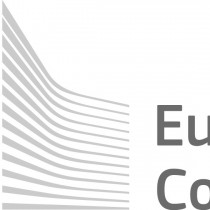EUROPEAN SUSTAINABILITY REPORTING STANDARDS-FIRST SET DRAFT ACT

EUROPEAN SUSTAINABILITY REPORTING STANDARDS-FIRST SET
DRAFT ACT
Feedback from AECA- Asociación Española de Contabilidad y Administración de Empresas (Ponencia sobre Información Integrada-ESG)
Thank you for the opportunity to provide feedback on the proposed delegated act that supplements the Accounting Directive, as amended by the Corporate Sustainability Reporting Directive (CSRD). We appreciate the efforts taken to enhance transparency and promote the disclosure of environmental, social, and governance (ESG) information by large and listed companies.
We would like to offer our feedback on several aspects of the proposed delegated act to further strengthen its effectiveness and clarity:
XBRL Implementation: We suggest including an annex or paragraph explicitly mentioning how the information from the ESRS will be required in XBRL. Providing guidance on the level of granularity and format will be essential for preparers to understand the technical aspects of reporting in XBRL using the ESRS-XBRL Taxonomy.
Materiality Assessment: We recommend considering the subjective nature of materiality assessment. Relying solely on materiality assessment may limit the capture of relevant information and increase complexity among companies that have to previously conditionate reporting to a materiality assessment. We suggest retaining a minimum mandatory content requirement in initial documents, particularly for key topics like climate, ensuring alignment with the International Sustainability Standards Board (ISSB) guidelines.
Extensibility: It is unclear whether the delegated act will allow for extensibility, enabling preparers to disclose additional information beyond the ESRS on specific topics. Clarification on the scope and methodology for such extensions, similar to the anchoring approach in the European Single Electronic Format (ESEF) reporting, would provide necessary guidance for preparers.
Alignment with ISSB: We encourage providing more detailed information on the alignment with the ISSB at the datapoint level. Ensuring a clear and consistent alignment with international standards will enhance comparability and facilitate meaningful analysis of ESG information.
Alignment with Other Directives: It would be beneficial to understand how the ESRS will address other Directives, such as the Corporate Sustainability Due Diligence Directive (CSDDD). Clear guidance on the interplay between these directives would support companies in meeting their reporting obligations effectively.
Roadmap for phase-in: While we understand the new phase-in strategy, we recommend establishing a roadmap for smaller companies with less than 750 employees and clarifying the reasons for this new threshold. Clarifying how these companies will need to capture information such as Scope 3 emissions would provide a clear path for their reporting journey.
New threshold of 750 employees: This new threshold has not been used in any phase of the sustainability requirements disclosures. We believe that, in order to be coherent, the common extended threshold of 500 employees should be used instead of 750 as it is a threshold not used in the CSRD and not commonly used in general.
Specific comments on Annex I:
| Standard | Paragraph or AR number or appendix | Comment |
| ESRS S1 | Title before paragraph 86 | In the Table of Contents of ESRS S1 (page 158/247) the name is “Disclosure Requirement S1-16 – Compensation metrics (pay gap and total compensation)” while in the description details on page 170/247 it is referred as “Disclosure Requirement S1-16 – Remuneration metrics (pay gap and total remuneration)”. The name must be aligned between both areas. In previous version (Nov 2022) it was named as “Disclosure Requirement S1-16 – Compensation metrics (pay gap and total compensation)”. |
We appreciate the opportunity to provide this feedback and believe that addressing these points will contribute to the successful implementation of the CSRD and the achievement of its objectives. We remain committed to supporting the development of robust and comprehensive reporting frameworks that drive sustainability, transparency, and accountability in corporate reporting.
Madrid, Spain, 6-7-2023
This article was written by paloma
